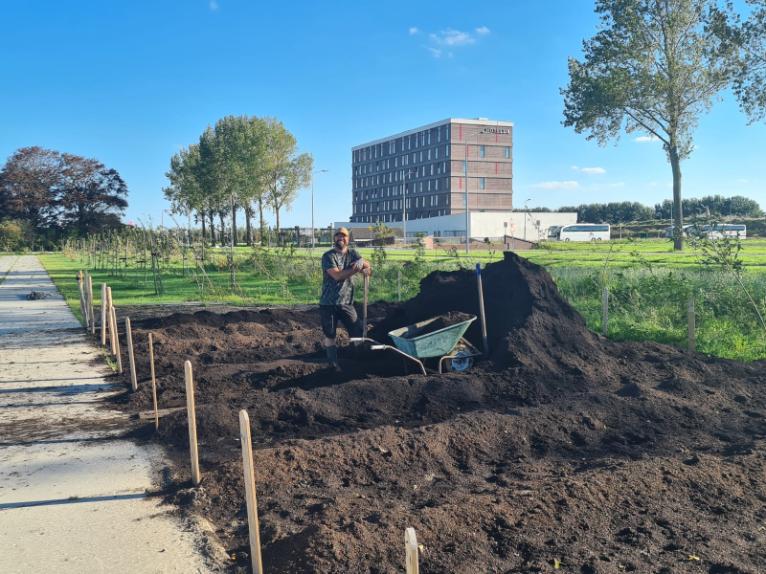Working together
in nature – with nature – for nature
Support us
Join us
MEERGroen
MeerGroen (More Green) Foundation is a non-profit volunteer based organisation founded in 2011. Since then, we have initiated numerous projects aimed at adding local ecological value and engaging people in nature management, particularly in public spaces.
We offer a variety of projects with ecological solutions to address the climate and biodiversity crises. These projects focus on:
Creating: green urban spaces with neighborhood participation.
Planting: orchards, wildflower meadows, community gardens, and climate forests.
Ecological management of: urban forests, parks, and neglected areas.
Saving and transplanting young trees: we rescue trees from less favorable locations and relocate them to more suitable ones.
Improving biodiversity: in addition to native plants, we build insect hotels, sand gardens for bees, and bat and birdhouses using recycled materials.
Raising awareness: educational workdays for businesses and schools.
Getting hands dirty: our approach is less talk and more focus on action! This way, we achieve a lot, and inspire others to get involved as well.

MEERGroene – in English is More Green The MEEER stands for ; (Maatschappelijke) – Social Cohesion. (Ecologische )- Ecological, (Educatieve) – Educational, (Economische) – Economical and (Recreatieve)- Recreational added values that we achieve with active citizen participation. Read more
Upcoming Special Events

Our dreams for the future of Lincolnpark and Haarlemmermeer
Join us in thinking about neighborhood identity
A new neighborhood featuring a totem pole as a landmark, crafted with meaningful symbols and visual elements, will serve as a distinctive marker of its identity. During the official opening on May 9, we will unveil a symbolic pole that embodies the aspirations and symbols of those involed and connected to the community. This pole will reflect what individuals hope for this area and its future over the next 10, 50, or even 100 years. To spark your imagination, we will showcase examples from a previous symbolic pole created in De Heimanshof. Read how you can partake in this unique initiative.
March 2025
The making of a Totem / symbol Pole
Last tree giveaways of the season in P2020 and Lincoln park
Featured Projects
Lincolnpark: Community food garden
In 2023 we started with a blank canvas discover the impressive progress we have made since then. Read more
C-Bèta: Fruit park and climate forest
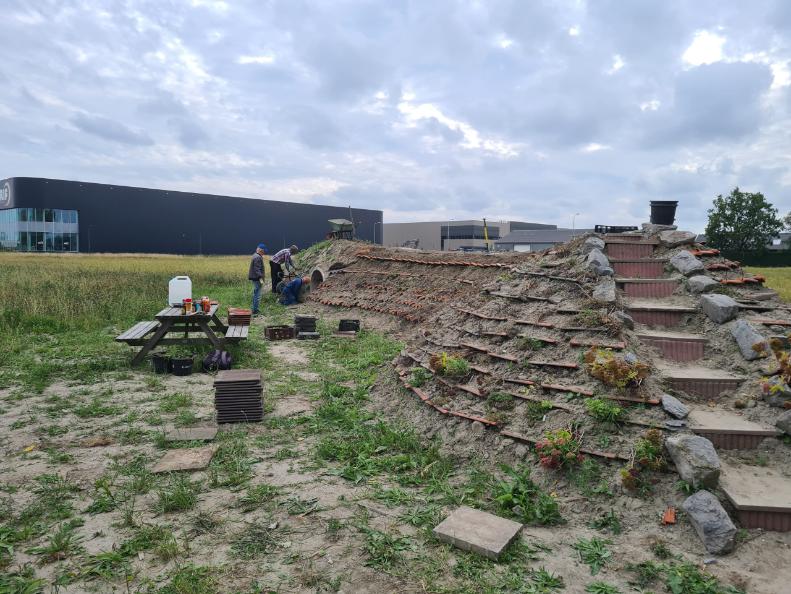
This 3 ha site was started in 2024 een die we met SADC aan het ontwikkelen zijn. Lees meer
Rijsenhout: Greenhouse with vegetables
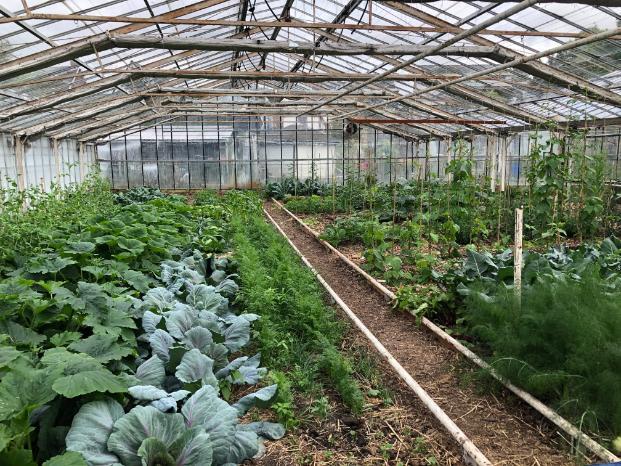
This green oasis is our haven for cultivating the majority of our vegetables, all grown without the use of pesticides.. Lees meer
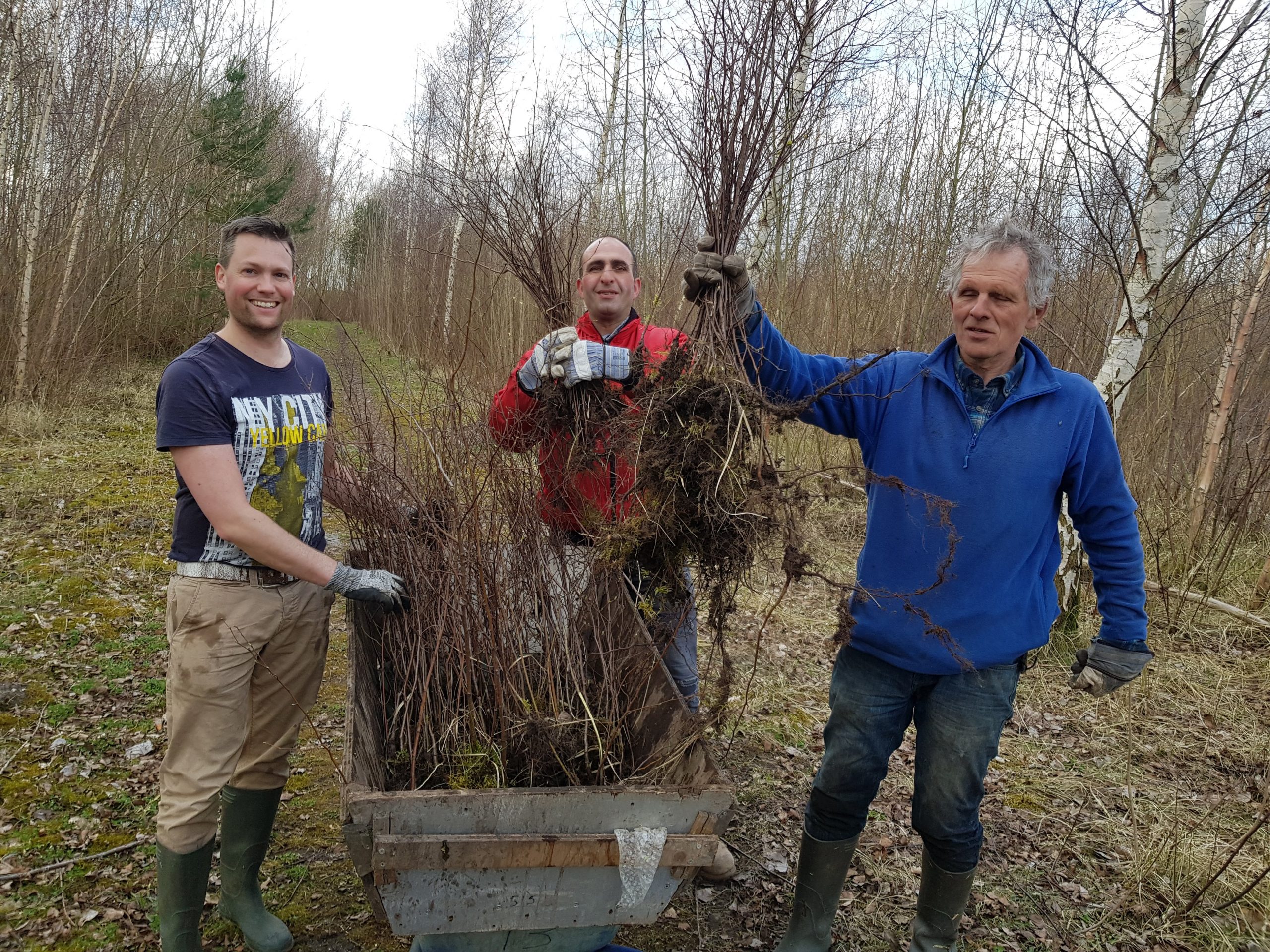
Winter : Tree season with the ‘Meer Bomen Nu’ campaign
From November to March each year, we join the national campaign Meer Bomen Nu, originally founded by our own ecologist Franke van der Laan. Through this initiative, we contribute to greening, raising environmental awareness, and addressing climate issues by rescuing young, at-risk trees with volunteer groups, and then relocating them to planting sites where they can thrive. Read more.
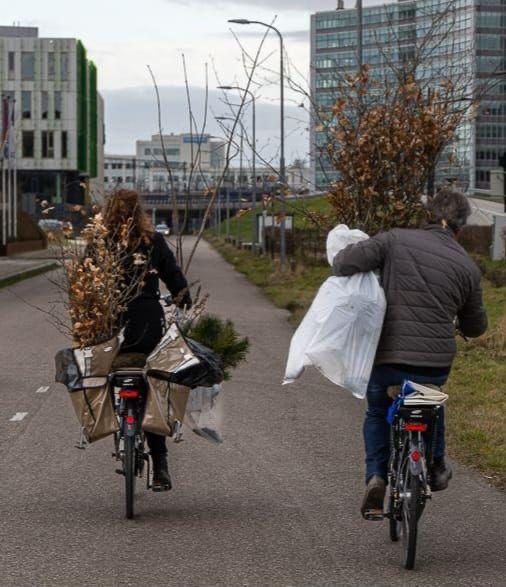
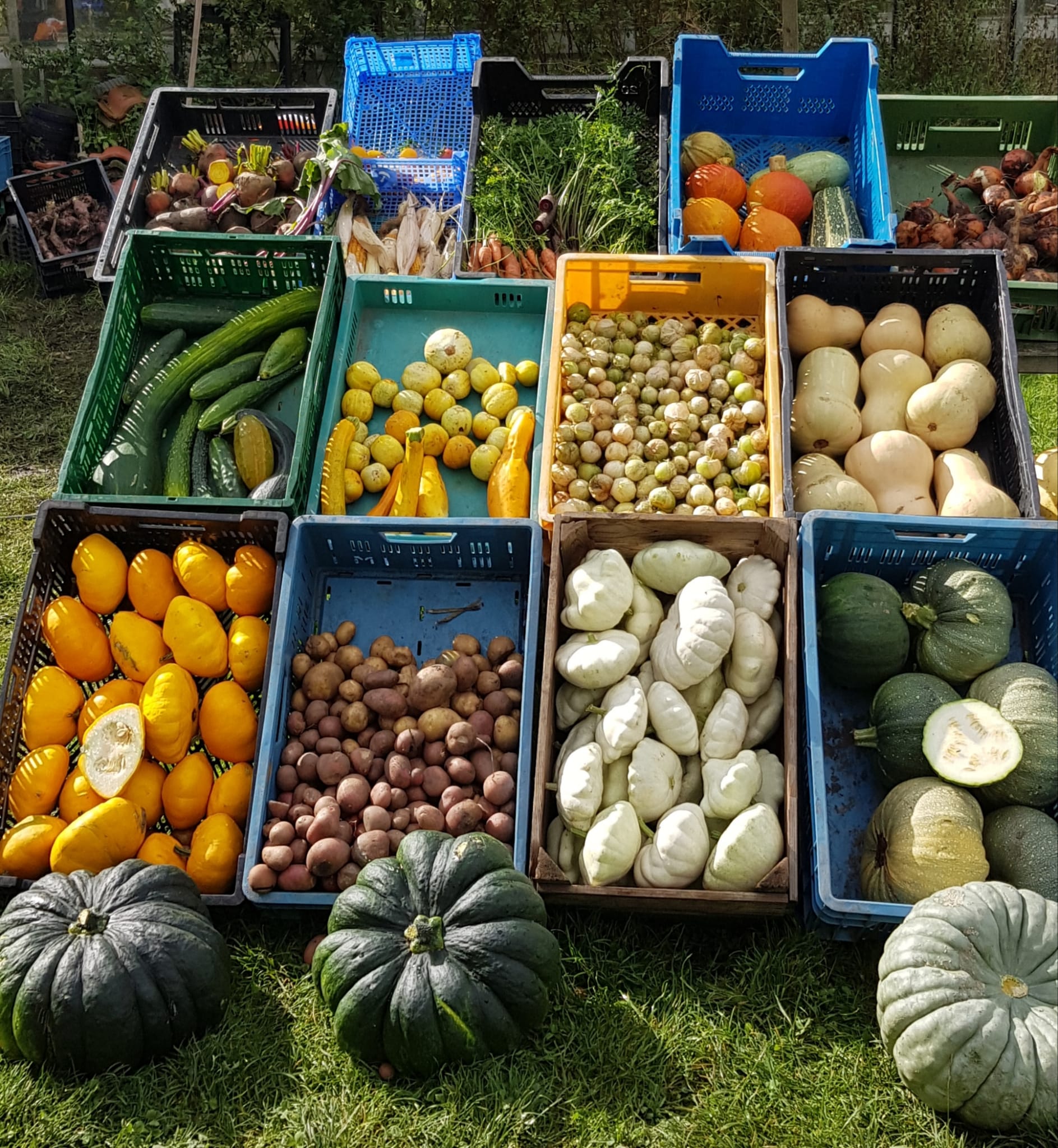
Summer : Garden and Vegetable season
From April to November we roll up our sleeves for local biodiversity and food production. We are working on a project almost every day of the week.
Come join us in making a difference
We sell the grown harvest in our MeerGroente (More vegetables) stall. Locally grown, without pesticides and affordable. Read more
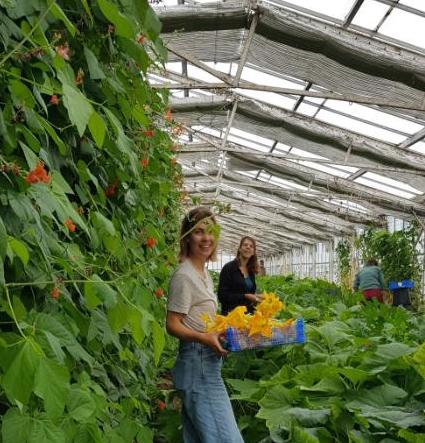
Social Media
Information
BANK: NL62INGB0657122106
KVK: 53612434
RSIN: 850947480
Newsletter
(Dutch language)
Privacy Policy

